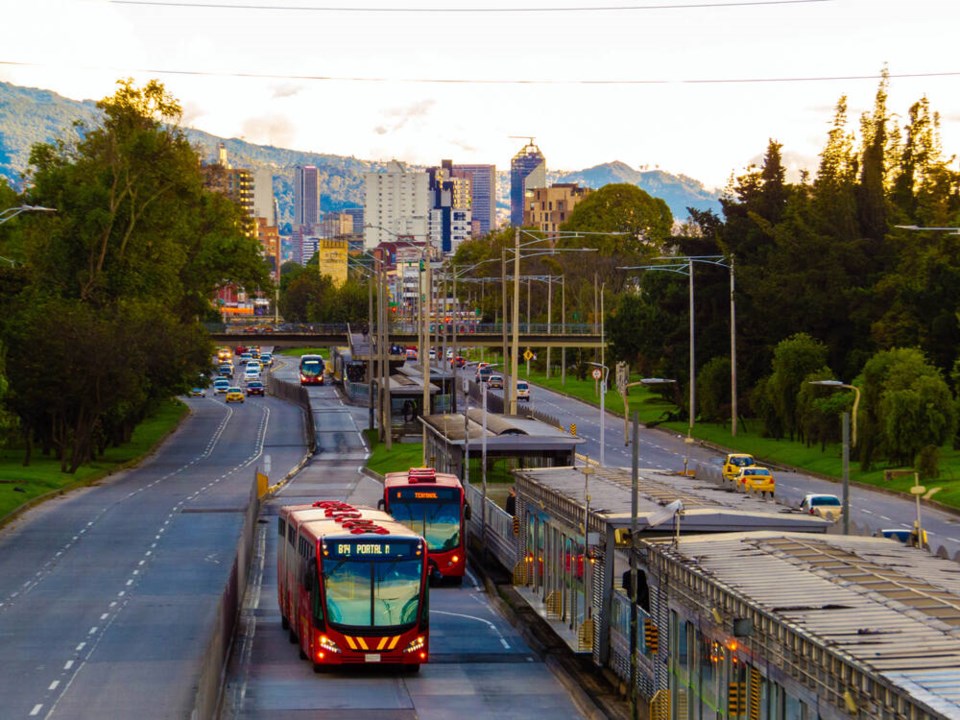Metro Vancouver mayors have re-endorsed a 10-year transit plan that calls for a new “bus rapid transit” lines linking Lynn Valley to downtown via the Lions Gate Bridge, and Park Royal to Metrotown.
Planning for a construction of bus rapid transit between the North Shore and the rest of Metro Vancouver should start this year, according to the plan, while work also begins on the feasibility of longer-term options. Increased bus service between the North Shore and other parts of the Lower Mainland are also in the plan as interim measures. There are also pledges to look further afield in the longer term, including examining transit options linking the Sea to Sky Corridor with the rest of the Lower Mainland.
At the first meeting of TransLink’s Mayors’ Council this year on Thursday, mayors threw their support behind staff moving ahead with priorities identified in the transit plan in April.
Federal and provincial dollars key
But they acknowledged getting provincial and federal governments to help pay for transit expansion remains a key consideration. Mayors also voiced frustration at cuts to service in their communities that were put in place during the ridership downturn during the pandemic and haven’t been reinstated, and bus service that hasn’t kept up with rebounding numbers of transit riders.
TransLink planning staff said extensive work is being done on improving service to the North Shore, and rapid transit remains a key priority.
City of North Vancouver Mayor Linda Buchanan stressed the urgency of situation, especially when it comes to getting provincial funding commitments.
“We need a full court press,” she said. “We need the service today. We actually needed it yesterday … There has to be a lot of pressure to actually get this done.”
Bus rapid transit is different to existing RapidBus lines like the R2 on the North Shore, with TransLink staff previously describing the technology and service involved as more like a subway or LRT system. It would also include dedicated lanes with traffic signal priority that allow buses to keep moving.
Benefits of bus rapid transit are it is far cheaper and quicker to build than something like a SkyTrain system.
District of North Vancouver Mayor Mike Little said, “If we build this out and stick to the plan after 10 years, we will have provided an excellent alternative to vehicles.”
Transit ridership has rebounded significantly in 2022, according to TransLink.
On the North Shore, ridership is up to about 81 per cent of pre-pandemic levels.
Sager questions cutting West Van bus to UBC
But several challenges remain – including cuts to bus service put in place due to budget constraints during the pandemic and labour shortages which have left some routes not being fully serviced.
During the pandemic, TransLink reduced service on some routes that were serving smaller numbers and reallocated service to areas with more riders.
The North Shore saw a six per cent reduction in its service during that process, while Surrey saw a 12 per cent increase.
Among the cuts was a dedicated bus line between West Vancouver and UBC.
West Vancouver Mayor Mark Sager told the mayors’ council the cut has meant hardship for university students on the North Shore. The time it takes to get to the university on connecting buses is far longer now, said Sager and “the connections don’t always work. They miss a class. They give up.”
TransLink staff said the UBC bus was one of three routes cut during the pandemic and used to serve about 90 people a day.
Little added residents in North Vancouver have also faced service reductions due to labour shortages that have caused buses to run less frequently.
“If we can’t maintain sufficient labour supply to retain what we already have, that’s going to be problematic for expanding service,” he said.
Metro mayors voted unanimously to approve this year’s work plan for the Transport 2050: 10-Year Priorities.



